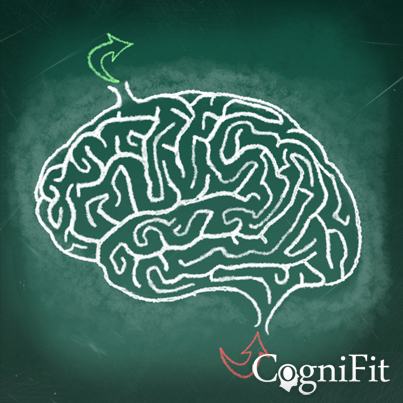Train Your Brain Seriously
Our brain is always on, always listening, always learning, and obeying our every command. It is our mind that solves all our problems, attending to all our emotions and desires, and who remembers our joys and sorrows. Our brain is our best friend. However, certain environmental conditions such as stress, depression, drugs, and substance abuse; neurological diseases such as learning disabilities, Multiple Sclerosis, and Alzheimer's; as well as developmental processes such as aging, can affect the brain's ability to attend, reason, learn and remember. Despite technological advances and the increase in educational level, it is observed that in all ages there is an increase in cognitive deterioration that can lead to neurological problems and drug abuse, depression, and lack of exercise. Cognitive impairment affects the performance of daily tasks, productivity at school, and at work. Researchers are trying to preserve cognitive functions by applying enrichment techniques to enhance learning. To carry out this task, they rely on a large body of scientific evidence that demonstrates the plasticity of the brain at the neuronal and cognitive level. One form of enrichment is brain exercise or, as it is sometimes called, brain training. Brain exercise is the systematic formation of cognitive reserve and its objective is the conservation, improvement, or development of cognitive abilities such as memory, executive control, or coordination. Much in the same way as we use physical training for developing muscular strength or flexibility.
The literature on cognitive training recommends that, in order to be more effective, cognitive training should be endowed with a firm scientific theoretical base. Trained processes should be firmly grounded in the scientific theory of human cognitive development throughout the lifespan. For example, a brain training program for the elderly should consider the speed of processing theory which stipulates a general perceptual and processing slowing down with advancing age and the executive control theory which claims a decline in fluid abilities such as attention, inhibition, task switching and working memory.

A second requirement stipulated by researchers is that a cognitive training program should use a personalized approach to learning in the form of an individually performance-adaptive, training system. Studies which used such a training system show that when an adaptive feedback mechanism operated in the training, cognitive function could be significantly improved. Research indicates that to improve performance, and maximize training-induced learning, feedback to the trainee must be timely, easily understood and applicable to ongoing performance on the task at hand.
An important goal of cognitive training is to allow greater ease in carrying out real-world tasks such as driving, regulating finances, managing medication intake and maintaining social interaction. Because a large number of cognitive processes operate in concert when performing real-world tasks, researchers have posited a third requirement, namely to design multi-domain cognitive training interventions that integrate several cognitive processes and are not restricted to a single process (for example, memory or processing speed).
CogniFit brain training program offers a wide range of benefits such us improve memory, attention, and processing speed. It improved reading speed and reading comprehension in individuals with reading disabilities and ameliorated gait and mobility in eldery people.
The science of brain training is an exciting journey into intensive discovery and debate. Using ever more sophisticated technology and steadfastly growing interdisciplinary knowledge, we are exploring the best conditions and circumstances for the long-term conservation of our health. On this journey, we observe training-related brain activity at the cellular and macro-cellular levels. We explore neurogenesis (the creation of new cell brains) after cognitive training. We observe as compensatory neuronal mechanisms (intact regions in the brain learn to carry out the functions supported by impaired brain regions) develop after brain training and this knowledge will expand. We know today that cognitive training is conducive to higher levels of cognitive reserve, the accumulated knowledge and experience of an active brain, and a potent protective factor against cognitive decline. In the future, we will expand this knowledge and target ever more specific brain areas and neurological conditions.
But future brain training research will tackle other questions important to humanity. It will ask whether the human brain can be trained, not only to preserve and promote cognitive function, but emotional and social resiliency. It will ask whether the brain can be trained to differentiate between good and evil, peacefulness and violence; justice and injustice. It will ask if the brain can be trained to like or dislike, agree or object. Debates in education, philosophy and ethics will flourish as brain training will come into the school system and will target, not only optimal mental and intellectual health, but also the assimilation of moral and social values.


